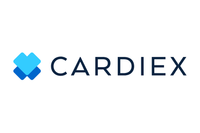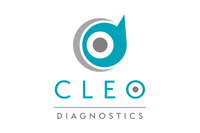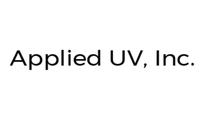3 Medical Device Companies Whose Stock Has Soared Following Q2 2017 Results
Thanks to their second quarter financial reports these medical device companies are experiencing growth in their stocks.
Usually, the summer provides a down time for the investment world, except however with quarterly report season. Now that we’ve seen the force of releases from companies sharing their gains and losses for the second quarter of the year, we can better look at the medical device companies that gained a boost from their reports.
Financial reports help both analysts and investors to stay aware of a company’s most recent developments and their overall operating business. The growth of a company is key in order to evaluate the potential to invest more or begin considering dropping a stock.
With that in mind, here the Investing News Network (INN) takes a look at three medical device companies whose stock have increased substantially following their Q2 2017 results. The companies below have market caps of less than $530 million but greater than $50 million.
AxoGen (NASDAQ:AXGN)
Market cap: $573.39 million; current share price: $17.60
AxoGen is focused on the regenerative medicine market with a portfolio of products set to work on peripheral nerve reconstruction. According to the company, the breakdown of their current target market totals a potential $1.6 billion.
The company’s future includes the chance to work with facial reconstruction, podiatry, breast reconstruction, prostatectomy and pain management.
AxoGen has seen a substantial 95.56 percent increase to their stock this year. During their financial disclosure for the second quarter released August 2, the company reported a 46 percent increase to their revenue, totaling 15.2 million compared to the same time period last year.
In the statement, president and CEO Karen Zaderej said the results posted by AxoGen represent the confidence of the market in their portfolio. “We are building the peripheral nerve repair market,” she added.
Corindus (NYSE:CVRS)
Market cap: $357.74 million; current share price: $1.91
Corindus operates on the cardiovascular robotic sector and seeks to increase the use of robotic-assisted percutaneous coronary intervention (PCI) with the intention to make these less invasive to the patient.
The company’s lead product Corpath GRX is an FDA approved robotic platform made to improve the PCI procedure. Through its robotics physicians can perform the operation with the potential to reduce radiation exposure.
Corindus released its Q2 financial results on August 8, reporting revenue of $2.3 million, thanks to the increase of the Corpath GRX network, which now represents a total installed base of 51 systems. The company turned a gross loss of 0.6 million last year to a $58,000 gross profit this time around.
“We are encouraged by our growing traction with the CorPath GRX among our hospital and clinician partners and are currently in late-stage purchase negotiations with ten hospitals,” Mark Toland, president, and CEO of Corindus said in a statement. “We look forward to accelerating momentum in the back half of the year and remain comfortable with our 2017 revenue guidance of $13 million to $15 million.”
Shares of Corindus have seen an extensive increase so far in 2017. On a year-to-date basis, its stock has gained 173.48 percent over a year-to-date period.
Sensus Healthcare (NASDAQ:SRTS)
Market cap: $79.31 million; current share price: $5.88
Sensus specializes in developing non-invasive treatments for non-melanoma skin cancer. Their lead device is the SRT-100 which gives patients a dose of “superficial radiation.” Sensus is banking on the painless experience and promises virtually no anesthesia or scarring while patients don’t have to face the heavy regiment of regular treatment. SRT-100 was cleared by the FDA and recently received approval for the Chinese market.
Markets in Asia have grown their medical fields and have expanded the quality of life for patients, which opens the door for medical device companies to enter a more accepting market. Several reports and data have dubbed China and the rest of Asia as emerging markets poised to see the most growth in the next decade.
As for their second quarter results released August 3, Sensus reported a 39 percent increase in revenue for a total $5 million.
“Our installed base grew to 295 units with 69 of those units treating keloids as well as skin cancer,” Joe Sardano president and CEO of Sensus said in the statement.
According to Sardano, the higher end SRT-100 represented half of the 16 systems the company shipped during the quarter.
Sensus went public last year and in the time since their launch, their stock has seen a minor 2.03 percent decrease. Year-to-date, however, their stock has risen 9.9 percent.
Editor’s note: The companies here were selected on their recent gains and are part of a Micro-Cap list of medical device companies on InvestSnips.
Don’t forget to follow @INN_LifeScience for real-time updates!
Securities Disclosure: I, Bryan Mc Govern, hold no direct investment interest in any company mentioned in this article.



